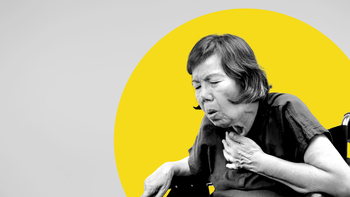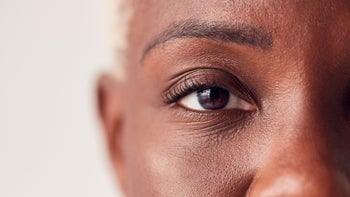
13 Medications That Cause Hair Loss
Key takeaways:
There are many medications that may cause hair loss. Common examples include chemotherapy, antidepressants, and anti-seizure medications. Some arthritis and antithyroid medications as well as birth control pills may also lead to hair loss.
Oral retinoids, tamoxifen, and blood thinners can also cause hair loss. In rare cases, beta blockers, levodopa products, and allopurinol (Zyloprim) can also have this effect. It usually reverses once you stop taking the medication, but in some cases it can be permanent.
Hair loss may occur while using GLP-1 related medications, such as semaglutide (Ozempic, Wegovy). But this is usually due to weight loss, and not the medication itself.
It’s best to talk to your healthcare team about hair loss caused by medication — don’t try to treat it on your own. They can recommend the best treatment option or make changes to your medications to help reverse or manage hair loss safely.
Access savings on related medications
Table of contents

If you or someone you know has experienced hair loss, you know how distressing this condition can be. Even though it's not a life-threatening problem, it can harm your self-image and quality of life. Sometimes hair loss is caused by the natural process of getting older, such as hormone changes. It can also be caused by genetics. But there are many medications that can cause hair loss, too.
Chemotherapy is the most well-known type of medication that causes hair loss. But what are the other medications that cause hair loss you should be aware of? And is there anything you can do to prevent it? Let’s take a look at the most common medications that may cause hair loss.
1. Retinoids
Retinoids are a class of medications that are used to treat skin conditions such as acne and skin discoloration. They’re derived from vitamin A and help lower inflammation and promote cell turnover.
Oral retinoids, like isotretinoin (Absorica), are known to cause telogen effluvium in some people. Telogen effluvium is when hair comes out in clumps. For example, you may notice more hair collecting in your hairbrush or in the shower.
Hair loss seems to happen more often with higher doses of oral retinoids. But it's often reversible after you finish the treatment course. You’ll typically take oral retinoids for 15 to 20 weeks. But if hair loss is severe or becomes concerning for you, talk to your healthcare team. They may have you stop taking the medication sooner.
2. Antidepressants
Antidepressants are a class of medications that treat mood disorders, such as depression, anxiety, and bipolar disorder. They work by affecting certain chemicals in the brain.
Hair-healthy foods: Fill your plate with these food groups to make sure you’re getting the right nutrients for strong and healthy hair.
Hair loss causes: From aging to autoimmune disease, these are the most common sources of hair loss.
Hair loss treatments: Learn about the medications, supplements, and procedures that can help treat hair loss.
Several antidepressants may cause hair loss, but the reason why is unclear. Commonly used antidepressants that may cause hair loss include:
Bupropion (Wellbutrin SR, Wellbutrin XL)
Selective serotonin reuptake inhibitors (SSRIs), such as fluvoxamine (Luvox)
Serotonin and norepinephrine reuptake inhibitors (SNRIs), such as duloxetine (Cymbalta), venlafaxine (Effexor XR), and desvenlafaxine (Pristiq)
According to one study, bupropion may have a higher risk of hair loss compared with other antidepressants.
Hair loss usually reverses once you stop taking an antidepressant. But you shouldn’t stop taking an antidepressant on your own. This can cause serious side effects, especially if you’ve been taking it for a while. Your prescriber can help you stop taking an antidepressant safely if you think it’s causing problematic hair loss.
3. Birth control pills
Hair loss is a less common birth control side effect, but it can happen in some cases. It may be more likely with birth control pills that contain certain types of progestins, called androgenic progestins. These progestins can also cause unwanted hair growth on other parts of the body.
Birth control pills may cause your hair to become thinner. You may notice this change about 3 months after starting birth control. But significant hair loss or balding isn’t likely. If you’re concerned about hair changes with birth control pills, talk to your prescriber. There are other options they can prescribe that are less likely to have an effect on your hair.
4. Anticoagulants
Anticoagulants are a class of medications that are used to treat and prevent blood clots. These medications are also called “blood thinners,” and they work by stopping blood clots from forming.
Hair loss is a possible side effect of anticoagulants. It can appear anywhere from weeks to years after starting the medication. Telogen effluvium seems to be the most common type of hair loss seen with anticoagulants. But the exact cause is unknown.
Anticoagulants associated with hair loss include:
Heparin
Warfarin (Coumadin, Jantoven)
Apixaban (Eliquis)
Rivaroxaban (Xarelto)
If hair loss is an issue, your prescriber may try switching you to a different blood thinner. But you shouldn’t make any changes to your anticoagulant medication without their OK.
5. Anticonvulsants
Anticonvulsants, also known as antiepileptics or anti-seizure medications, are a class of medications that treat and prevent seizures. They work by stabilizing the electrical activity in the brain. Some anticonvulsants are also used to treat certain mood disorders, such as bipolar disorder.
Hair loss is a reported side effect of some anticonvulsant medications. One review found hair loss was more common with valproic acid (Depakote) and pregabalin (Lyrica), but less common with levetiracetam (Keppra).
6. Beta blockers
Beta blockers are a class of medications that treat high blood pressure and other heart conditions. Beta blockers may cause telogen effluvium in some people, but it’s not common.
Commonly used beta blockers include:
Propranolol (Inderal)
Atenolol (Tenormin)
Metoprolol (Lopressor, Toprol XL)
Good to know: You may have heard that losartan (Cozaar) — a different type of blood pressure medication — can cause hair loss. But hair loss is not a known side effect of losartan.
7. Antithyroid medications
Thyroid conditions can cause hair loss on their own. And antithyroid medications used to treat an overactive thyroid (hyperthyroidism) can also contribute to hair loss. Examples of these medications include methimazole and propylthiouracil.
Let your prescriber know if hair loss becomes an issue while you’re taking an antithyroid medication. They may want to check your thyroid hormone levels to make sure they’re where they should be and adjust your medication if needed.
8. Chemotherapy
Chemotherapy is a common cancer treatment that works by killing cancer cells. But it also kills other fast-growing cells in your body, and that includes your hair cells. This type of hair loss is called anagen effluvium.
Hair loss typically begins days to weeks after receiving chemotherapy. And hair loss effects are often fairly noticeable after 1 to 2 months. Commonly used chemotherapy medications that can cause hair loss include cyclophosphamide (Cytoxan) and doxorubicin.
Cooling caps, gentle brushing, and avoiding heat-based styling devices may help lessen hair loss. But there’s not a foolproof way to prevent it. The good news is that hair typically grows back within 3 months after completing chemotherapy treatment.
9. Tamoxifen
Tamoxifen is a medication that’s used to treat or prevent breast cancer. It’s known to cause hair loss or thinning due to its estrogen-blocking effect.
Hair will usually regrow when treatment is completed. But you’ll typically take tamoxifen for several years. So talk to your prescriber about treatment options if hair loss is bothersome while you’re taking tamoxifen.
10. Certain arthritis medications
Certain medications used to treat rheumatoid arthritis and other autoimmune conditions may also cause hair loss. For example, traditional disease-modifying antirheumatic drugs (DMARDs) — such as methotrexate and leflunomide (Arava) — cause hair loss because they can stop or slow down hair growth.
Although rare, biologic DMARDs — such as etanercept (Enbrel) and adalimumab (Humira) — can also cause hair loss. But it’s not fully understood why this happens.
11. Allopurinol
Allopurinol (Zyloprim) is a medication that treats gout. It’s been linked to hair loss, but this seems to come from limited case reports. So it’s not clear how likely hair loss is while you’re taking allopurinol. But if it happens, let your prescriber know. A different gout medication may be a better option for you.
12. Levodopa
Sinemet (carbidopa / levodopa) is a medication used to treat symptoms of Parkinson’s disease. Levodopa — one of the medications in Sinemet — may cause hair loss. Levodopa works like dopamine in the body, and dopamine seems to prevent hair growth in some people. Bromocriptine (Parlodel) is another medication that acts like dopamine in the body and may cause hair loss.
Hair loss from levodopa or bromocriptine isn’t common, but let your prescriber know if it happens to you. They can help you stop taking Sinemet safely if needed to manage this side effect. But don’t stop taking it on your own. It can be dangerous to abruptly stop taking levodopa.
13. Ozempic and other GLP-1 related medications
Some people taking GLP-1 related medications, such as semaglutide (Ozempic, Wegovy) and tirzepatide (Mounjaro, Zepbound), reported hair loss in clinical trials. It’s not clear if this is from the medication itself or if it’s due to the weight loss seen with these medications. That’s because losing weight rapidly is a known cause of hair loss.
In most cases, hair loss should reverse as your body adjusts to a GLP-1 related medication. But let your prescriber know if it doesn’t. It’s possible that you’re not getting enough nutrients or there’s another cause that should be addressed.
How to treat hair loss caused by medication
Medication-related hair loss may be permanent, but it can usually be reversed by stopping the medication causing it, if possible. Keep in mind that stopping your medication isn’t always an option. And it’s not something you should do on your own.
There may be other treatment options for hair loss caused by medication. Topical treatments such as minoxidil (Rogaine) may help. Certain supplements, such as vitamin D and omega-3 fatty acids, may also help in certain situations. But the right treatment depends on what’s causing your hair loss and what type of hair loss it is. Not all hair loss caused by medication can be treated.
Talk to your healthcare team before trying any hair-loss treatments on your own. They can make sure they won’t interfere with your other medications. And they can help recommend the options that are likely to work best for your specific situation. They may also be able to change the medication that’s causing hair loss to a different treatment option.
The bottom line
Hair loss is often associated with getting older or chemotherapy. But other medications can cause hair loss. Some examples include oral retinoids, blood thinners, and antidepressants. Anti-seizure medications, beta blockers, and antithyroid medications are also known to cause hair loss for some people. Some arthritis medications and birth control pills can, too.
GLP-1 related medications, such as semaglutide (Ozempic, Wegovy), can cause hair loss. But this is likely caused by rapid weight loss, not the medication itself.
In most cases, hair loss caused by medication is temporary. Lost hair will usually regrow once the medication is stopped. But sometimes, stopping medication isn’t an option. And although rare, hair loss triggered by a medication can be permanent.
Let your prescriber know if you think your medication is affecting your hair. They may recommend a treatment option to help the hair regrow. Or they may be able to change the medication causing hair loss to a different treatment option.
Why trust our experts?



References
Amjad, M. T., et al. (2023). Cancer chemotherapy. StatPearls.
Chen, B., et al. (2015). Cosmetic side effects of antiepileptic drugs in adults with epilepsy. Epilepsy and Behavior.
Etminan, M., et al. (2018). Risk of hair loss with different antidepressants. International Clinical Psychopharmacology.
Hussein, R. S., et al. (2023). Impact of thyroid dysfunction on hair disorders. Cureus.
InformedHealth.org. (2006). Overview: Hair loss in chemotherapy. Institute for Quality and Efficiency in Health Care.
Kang, D., et al. (2024). Telogen effluvium associated with weight loss: A single center retrospective study. Annals of Dermatology.
Karatas, F., et al. (2016). Management of hair loss associated with endocrine therapy in patients with breast cancer: An overview. SpringerPlus.
Lee, J., et al. (2023). Hair loss: A well-known yet understudied symptom in Parkinson’s disease patients during dopaminergic therapy. Journal of Movement Disorders.
Lutf, A., et al. (2012). Weight gain and hair loss during anti-TNF therapy. International Journal of Rheumatology.
Lytvyn, Y., et al. (2022). Comparing the frequency of isotretinoin-induced hair loss at <0.5-mg/kg/d versus ≥0.5-mg/kg/d dosing in acne patients: A systematic review. JAAD International.
Mercke, Y., et al. (2000). Hair loss in psychopharmacology. Annals of Clinical Psychiatry.
National Cancer Institute. (2020). Hair loss (alopecia) and cancer treatment.
Phillips, T. G., et al. (2017). Hair loss: Common causes and treatment. American Family Physician.
Tosi, A., et al. (1994). Drug-induced hair loss and hair growth. Incidence, management and avoidance. Drug Safety.
Trüeb, R. M., et al. (2018). A comment on the science of hair aging. International Journal of Trichology.
Villani, A., et al. (2023). Hair aging and hair disorders in elderly patients. International Journal of Trichology.
Watras, M. M., et al. (2016). Traditional anticoagulants and hair loss: A role for direct oral anticoagulants? A review of the literature. Drugs - Real World Outcomes.
Wikramanayake, T. C., et al. (2023). Prevention and treatment of chemotherapy-induced alopecia: what is available and what is coming? Current Oncology.
Was this page helpful?
Related Articles
Browse medications
View AllResearch prescriptions and over-the-counter medications from A to Z, compare drug prices, and start saving.

























